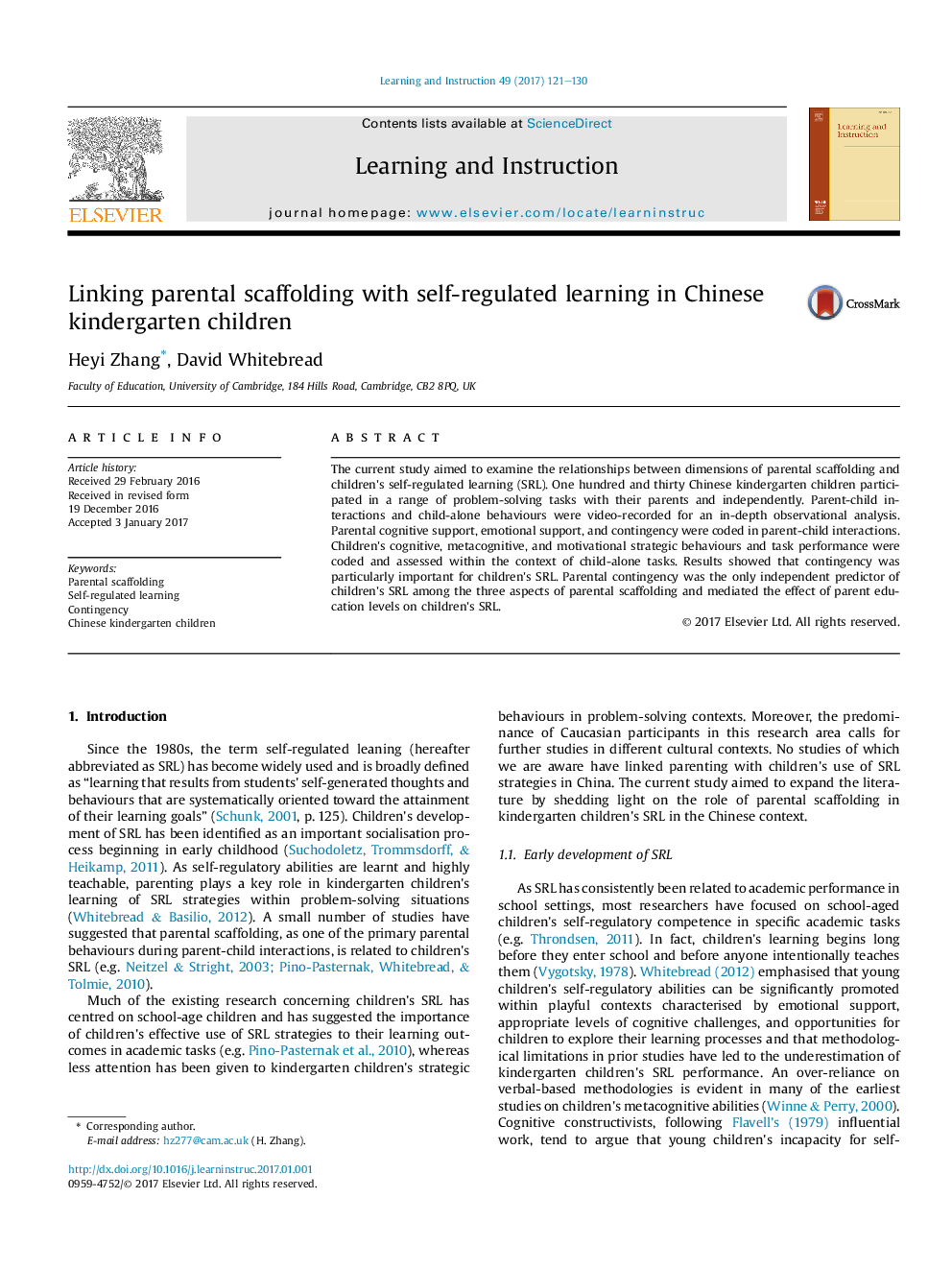| Article ID | Journal | Published Year | Pages | File Type |
|---|---|---|---|---|
| 4940259 | Learning and Instruction | 2017 | 10 Pages |
Abstract
The current study aimed to examine the relationships between dimensions of parental scaffolding and children's self-regulated learning (SRL). One hundred and thirty Chinese kindergarten children participated in a range of problem-solving tasks with their parents and independently. Parent-child interactions and child-alone behaviours were video-recorded for an in-depth observational analysis. Parental cognitive support, emotional support, and contingency were coded in parent-child interactions. Children's cognitive, metacognitive, and motivational strategic behaviours and task performance were coded and assessed within the context of child-alone tasks. Results showed that contingency was particularly important for children's SRL. Parental contingency was the only independent predictor of children's SRL among the three aspects of parental scaffolding and mediated the effect of parent education levels on children's SRL.
Keywords
Related Topics
Social Sciences and Humanities
Psychology
Developmental and Educational Psychology
Authors
Heyi Zhang, David Whitebread,
